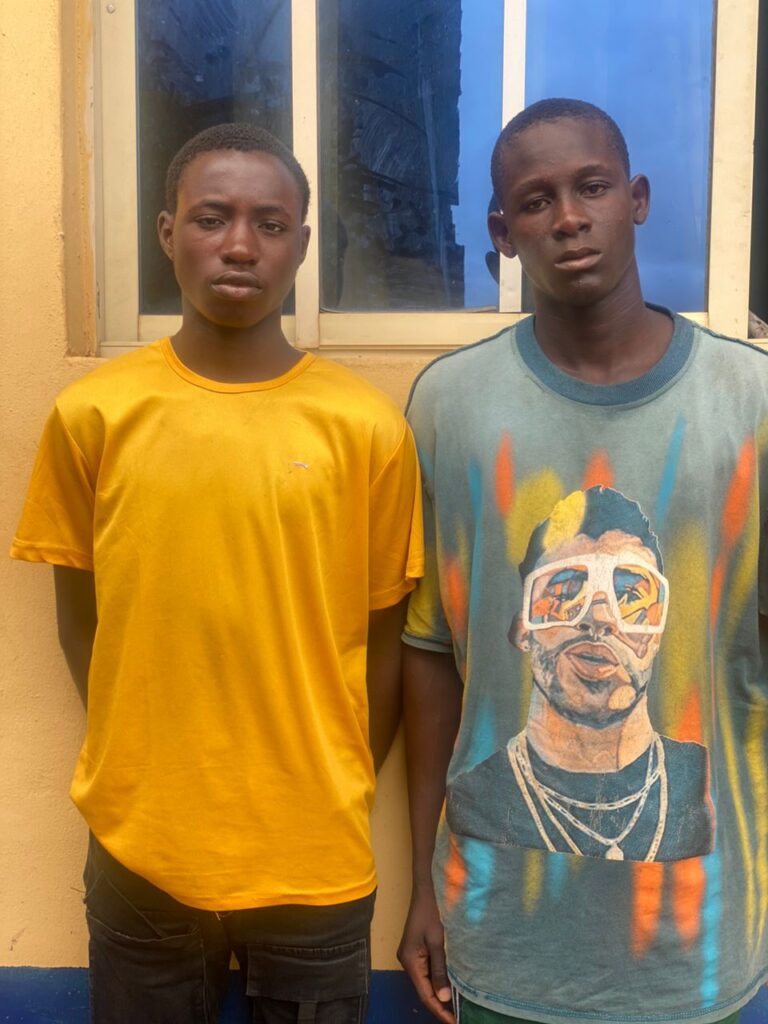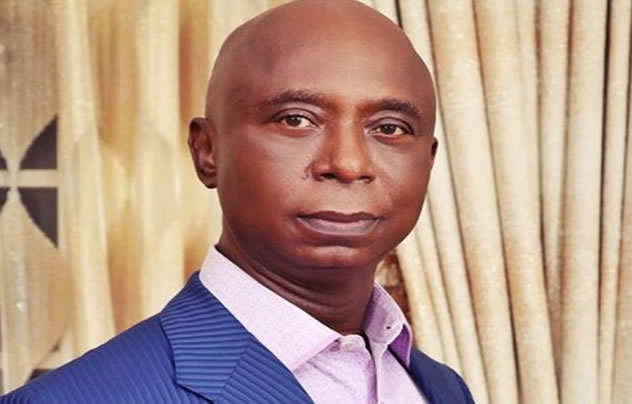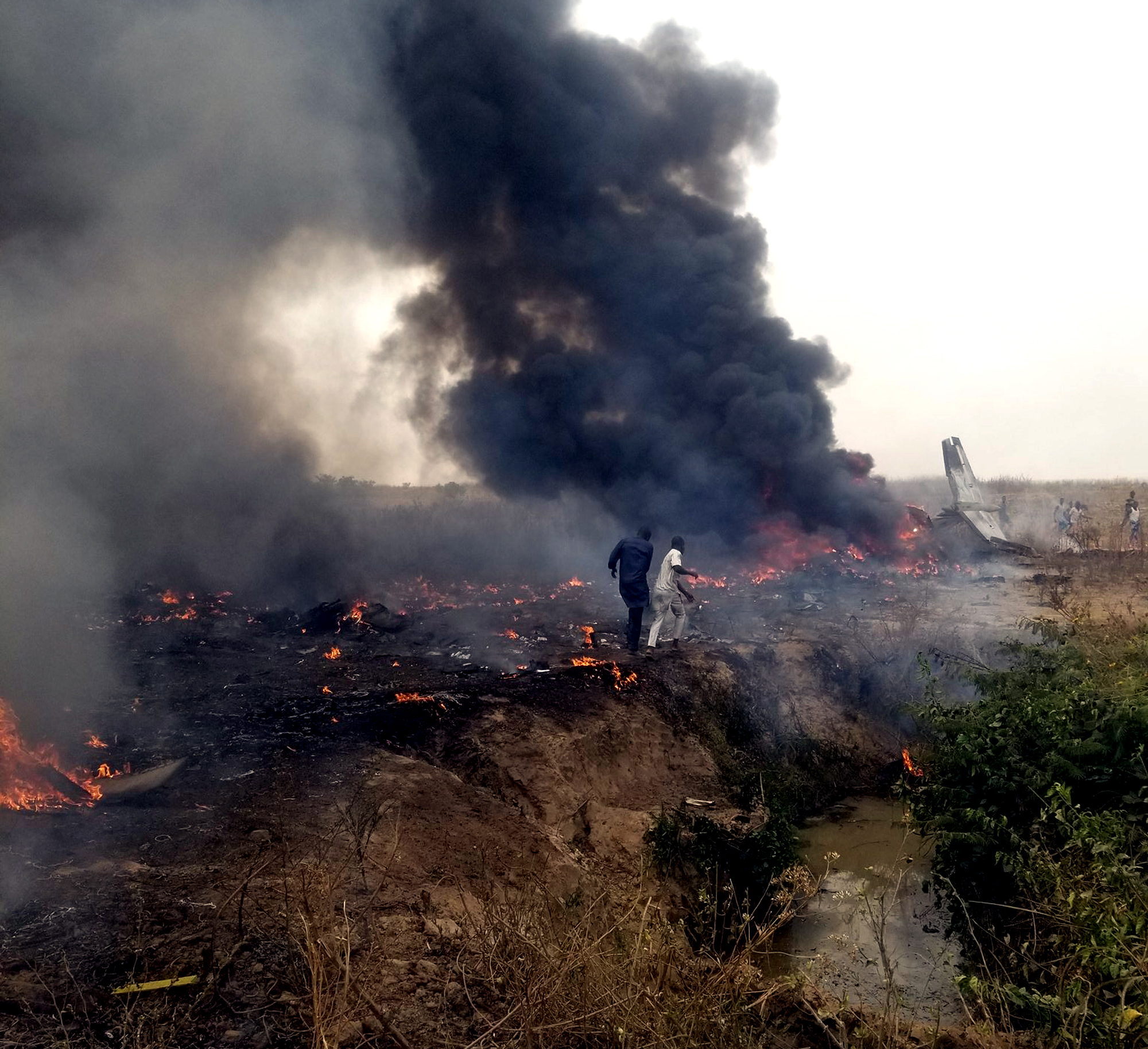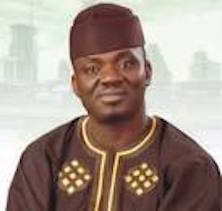Uncategorized
2 Men Jailed 20 Years Each for Kidnapping Mike Ozekhome a Decade Ago

A Federal High Court (FHC), Abuja, on Friday, convicted and sentenced two of the four defendants who kidnapped Chief Mike Ozekhome, SAN, on Aug. 23, 2013, to 20 imprisonment each.
Justice Binta Nyako, in a judgment, held that the prosecution had been able to prove the counts preferred against Kelvin Ezeigbe and Frank Azuekor, who were 1st and 2nd defendants, beyond reasonable doubt.
Justice Nyako held that the sentence would run from the day of their arrest.
She held that though some of the counts against Ezeigbe and Azuekor attracted punishment ranging from death sentence, life imprisonment to at least 10 years jail term, she said she had found that the accused had been remorseful of their criminal act.
She said she also found that they had been in custody for about 10 year from the day of their arrest.
“I have considered the plea by 1st and 2nd defendants and I have noted their remorsefulness.
“I will sentence you to 20 years imprisonment each which will run from the date each of you was arrested.
“This is to serve as a deterrent not only to you but for other people to know that this is not the way to survive.
“We need to send the right messages to society that it is not acceptable to do bad behaviour,” shw said.
The judge, who ordered that the duo be transferred from the custody of the Department of State Service (DSS) to Kuje Correctional Centre, however, discharged and acquitted Michael Omonigho and Momoh Haruna, who were 3rd and 4th defendants, of the counts levelled against them in the terrorism charge.
She said the prosecution failed to substantiate allegations of conspiracy and kidnapping against Omonigho and Haruna.
The News Agency of Nigeria (NAN) reports that while Omonigho, who was said to be the chief priest of his community was in court, Haruna was not.
When Nyako warned Omonigho to be careful as people worship in his shrine in the open court, the chief priest responded thus: “I have repented my lord.”
The judge, however, directed that Haruna, who was at large, should be brought to court to face the sin of his escape from lawful custody, even though he was discharged of the counts against him.
They judge commended the defence lawyer, Bala Dakum, and the prosecution counsel, Chioma Onuegbu, for their industrious input in the course of the trial.
NAN reports that the defendants; Kelvin Ezeigbe, Frank Azuekor, Michael Omonigho and Momoh Haruna were first arraigned before Justice Adeniyi Ademola of a FHC, on June 9, 2014, on a 13-count charge bordering on conspiracy, armed robbery, kidnapping and acts of terrorism.
The charge was later amended to a 14-count.
While the three defendants were in court for the trial, Haruna was said to be missing after the attack on Kuje Correctional Centre by terrorists on July 5, 2022.
They were accused of committing acts of terrorism, contrary to Sections 1, 8 and 10 of the Terrorism Prevention Act, 2011.
According to the charge, they were alleged to have, on Aug. 23, 2013, kidnapped Mr. Ozekhome at Iruekpen on his way to Iviukwe in Agenebode, Edo.
Ozekhome was held in captivity for about three weeks before his release allegedly following the payment of N28 million ransom.
They were also accused of kidnapping Delta State Commissioner for Higher Education, Prof Hope Eghagha; Attanasius Ugbome and his friend, Emmanuel Maka Omorogbe, and killing five policemen and two prison officials.
The defendants were also alleged to have compelled Eghagha to pay N7 million, Ugbome paid N20 million and Omorogbe paid N3.5 million.
The five police officers allegedly killed were Paul Ajaka, Sunday Ewanshiha, Michael Akpada, Bakary Ekong and Innocent Odoh.
They also allegedly killed Lawrence Edora and Oyibo Okoye who were prison officers and made away with their service rifles.
The four suspects were refused bail filed on their behalf by their lawyer, Bala Dakum.
While Ezeigbe and Azuekor were held at the facility of the DSS, Omonigho and Haruna were held at Kuje Correctional Centre, Abuja.
Delivering the judgment, Justice Nyako noted that the defendants faced 14-count amended charge.
She said the trial judges were changed severally in the course of the matter until it was finally reassigned to her.
The judge, who said that the prosecution called seven witnesses, said Ozekhome testified as 6th prosecution witness (PW6).
Reviewing the prosecution’s evidence, Justice Nyako said Ozekhome’s “testimony was central to the prosecution’s evidence.”
She said the prosecution, led by Onuegbu, a lawyer at the Federal Ministry of Justice in Abuja, also tendered 16 exhibits in aid of its case.
She said Ozekhome told the court that he was kidnapped by Ezeiegbe and Azuekor as well as other members of their gang and that he paid a N40 million ransom to the convicts in dollars before he was released from their dungeon.
The judge said the senior lawyer narrated that he spent three weeks in the kidnappers den.
“Mike Ozekhome is a Senior Advocate of Nigeria and swore with the Holy Bible while giving his testimony,” she recalled.
She said Ozekhome was a witness of truth whose testimony could not be ignored, going by the Evidence Act on eye-witness account.
In convicting Ezeiegbe and Azuekor, the judge also relied on a letter from the Delta State Attorney-General to the Attorney-General of the Federation which said Azuekor was indicted for a crime in the state prior to his arrest for kidnapping of Ozekhome.
She held that the convicts’ denial of their confessional statements was immaterial as they did not provide an alibi for the crimes.
She held that based on the evidence of the prosecution witnesses, Ezeiegbe (the 1st defendant) and his gang members aided and abetted Azuekor (the 2nd defendant) by attacking prison officials who were escorting Azuekor to court in Delta for another criminal trial, killing two of the prison officers.
“I find him (Mr Azuekor) guilty of escaping from lawful custody.
“I find that the prosecution has proven its case. This is very believable evidence,” the judge said.
Earlier before handing down the sentencing, the defendants were given the opportunity to plead for mercy.
Ezeigbe begged the court to temper justice with mercy since he had been in prison custody for about 10 years.
The convict, who said he had been suffering from different sicknesses like ulcer, asthma and diabete, said he had about 10-year-old child and a wife.
When the judge asked about his wife, a lady stood up in the open court.
Also, Azuekor pleaded that the court should be lenient its sentencing.
He said he had never been convicted before and had been in custody for about 10 years.
Besides, Azuekor said he had aged parents and that he was also suffering from a serious eye problem.
Their counsel, Mr Dakum, also prayed the court to temper justice with mercy.
“I appeal to my lord to apply the least conviction. They have families and they are the breadwinners,” he pleaded.
The judge, who appreciated Dakum’s industry in the course of the trial, said:: “When we do this kind of case, it is not as if we want to punish people, but for people like Kelvin and Frank who think they were graduates and deserve good life, to learn.”
She said one should not engage in bad behaviour because one thinks that the society has failed him or her.
Uncategorized
Crude Oil Theft: Nwoko Seeks AI Powered Surveillance, Regional Security

Sen. Ned Nwoko, the Chairman of the Senate Ad hoc Committtee on Crude Oil Theft, says Nigeria must implement a robust technological framework to curb crude oil theft in the country.Nwoko in an interview in Abuja on Monday, said that crude oil theft in the Niger Delta region had long plagued the nation, resulting in severe economic losses, environmental degradation, and national insecurity.
He said as a country heavily reliant on oil revenues to fund its budget and development, it was imperative that her national assets were treated with the seriousness they deserve, adding that it was time to reclaim control of her oil assets. He therefore advocated for the deployment of AI-Powered Surveillance ranging from drones to predictive analytics to monitor the nation’s pipelines and facilities.He also advocated for the strengthening of the country’s regional security, noting that oil theft thrives in insecurity.‘’Parallel investment in regional peace and stability is crucial. The host communities must be incorporated into the system, thereby making them have a sense of belonging in the oil and gas sector by engaging them into meaningful infrastructural development.‘’There is also the need for collaboration with Tech Firms. We must actively engage global and local tech companies with proven capacity to deliver real-time monitoring and risk detection.‘’Institutional commitment is also needed to curb crude oil theft; NNPCL and other stakeholders must be held accountable.“Monitoring should not just be technological, it must include institutional transparency.‘’Adopting Saudi Arabia’s corporate social responsibility method in collaborating with the oil and gas host communities will also go a long way in tackling crude oil theft.“If Nigeria adopts these strategies and embracs AI-driven innovation, we can reclaim control of our oil assets, meet our OPEC quota, and catalyse real economic development,” the lawmaker said.According to the chairman, senate ad-hoc committee on crude oil theft, we can no longer pretend we don’t know the cause or the cure of our problems.‘’It’s time to stop looking away. We must be intentional, patriotic, and honest. We must emulate nations whose progress is not mythical but practical. Let us do what is right for Nigeria, for now and for the future.‘’The NNPCL and the various international and national oil companies (IOCs and NOCs) operating in the sector must act decisively‘’Under the supervision of patriotic leadership, they must adopt advanced technological systems to protect our oil infrastructure and deter sabotage.’’Nwoko noted that In 2022, the then Group Managing Director of the NNPCL, Mele Kyari, assured Nigerians of efforts to adopt a model similar to that of the Saudi Aramco to combat oil theft and pipeline vandalism.He said that Kyari had admitted then that while Nigeria’s system was not yet as advanced as Aramco’s, the goal was to eventually match their level of sophistication.‘’Sadly, we are still far from that benchmark. As a nation, we must summon the courage to call a spade a spade.‘’We cannot continue with half-measures. Every meaningful step that can rescue this country from the stranglehold of economic sabotage must be taken without delay.‘’To move forward, we must learn from countries that have gotten it right. How did developed nations build systems that effectively secure their oil and gas infrastructure? What strategies and technologies do they use?, he added. (NANNEWS
Ododo Clears N98.8 Billion Debt, Tasks Officials On Grassroots Engagement, Local Patronage

From Joseph Amedu, Lokoja
Governor Ahmed Usman Ododo has charged government officials to remain close to the grassroots and ensure constant engagement with the people, noting that such connection is key to responsive governance. Ododo gave the charge during the State Executive Council Meeting held in Lokoja on Monday.
“We are in government to serve the people, and that means staying connected to their needs and aspirations,” the Governor said. As part of efforts to boost the local economy, the Governor also directed all government officials to wear Made-in-Kogi fabrics as a show of support for indigenous industries. He encouraged Kogites to take pride in local products and lead a cultural and economic renaissance from within. Also Briefing journalists after the meeting, the Commissioner for Information and Communications, Hon. Kingsley Femi Fanwo, said the administration is committed to making governance more visible and impactful. “Governor Ododo is driving a government that listens, learns, and leads from the grassroots. His directive on Made-in-Kogi fabrics is a strategic move to grow our economy and export our identity,” Fanwo said. On infrastructure, Fanwo disclosed that perimeter fencing at the Confluence University of Science and Technology (CUSTECH), Osara is 90% completed, while both male and female hostels have been completed and are already housing students. Similar projects at the Kogi State University, Kabba, are progressing satisfactorily. To improve public safety, the Council also approved a bill to restrict the movement of heavy trucks during peak hours. Another bill was approved for the establishment of the Kogi State Agency for Climate Change as part of a forward-thinking response to global environmental challenges. In a separate briefing, the Commissioner for Finance, Budget and Economic Planning, Mukadam Asiwaju Asiru Idris, announced that the Ododo administration has fully liquidated N98.8 billion in debts inherited from previous administrations within just 15 months. The breakdown includes,N8 billion in bonds from the Idris Wada administration,N50.8 billion salary bailout from the last administration,N10 billion ECA-backed infrastructure loan,N15 billion infrastructure loans from Zenith Bank and another N15 billion from UBA Plc.“This is a landmark achievement. His Excellency Governor Ododo has demonstrated fiscal discipline and commitment to economic recovery. Within 15 months, we have cleared N98.8 billion in inherited debt,” Idris said.He added that Fitch Ratings has upgraded Kogi State’s credit rating from ‘B-’ to ‘B’, with a stable outlook, citing prudent financial management. As of September 30, 2024, the state’s debt profile stands at N40.5 billion, placing it on a strong path to debt sustainability.Uncategorized
France to Partially Ban Smoking in Public Areas to Protect Children

France is to ban smoking in public outdoor spaces, including beaches, parks, school zones, bus stops and sports facilities starting July 1 as part of a nationwide effort to protect children.
Health Minister Catherine Vautrin said where there are children, tobacco must disappear.
She added that plans to lower the nicotine content in vaping products and reduce the number of flavours available.
“Anyone who violates the new smoking ban will have to pay a fine of 135 euros (153 U.
S. dollars).“The regulation is to be monitored by the municipal police.
“My goal is both simple and deeply ambitious: to ensure that children born in 2025 become the first smoke-free generation,” the minister said.
The new nationwide smoking restrictions, many of which were already in place at the local level, are designed to support that vision, she said.
However, outdoor seating at cafés and the use of e-cigarettes is exempted from the ban, but young people should no longer smoke outside schools.
The minister said that the size of the area around schools where smoking would no longer be permitted in future was still being determined.
The regulation should also prevent pupils from going outside the building to smoke.
In 2023, 15.6 per cent of 17-year-olds said they smoked, compared to twice as many 10 years earlier.
Smoking remains the leading preventable cause of death in France, responsible for 75,000 deaths annually or more than 200 per day, the health minister added.
Vautrin noted that it has been proven that prevention reduces the risk.
She also noted the economic toll, with cancer costing the country 150 billion euros per year.
Vautrin emphasised that the right to smoke is not being abolished.
“People are free to smoke at home or in designated areas. But that freedom ends where a child’s right to clean air begins.” (dpa/NAN)


















